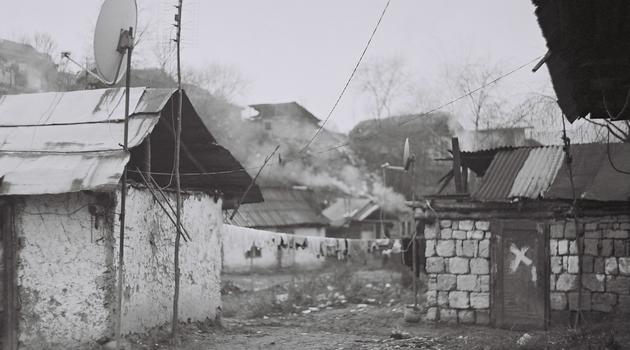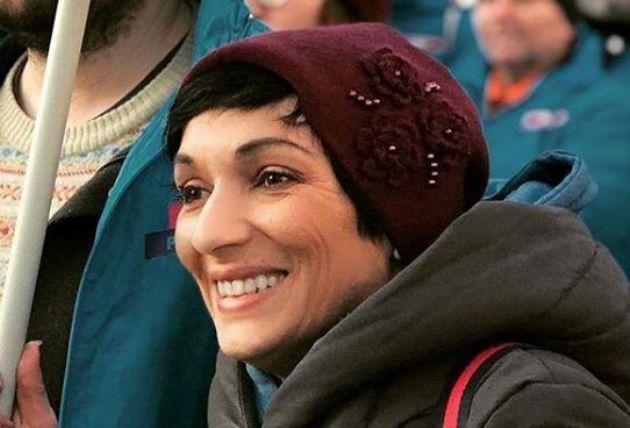Coronavirus pandemic can make conditions in the Romani settlements of Slovakia deadly, protective gear slow to reach those who need it

Slovak news server SME is reporting that the problems concentrated in the Romani-inhabited settlements of Slovakia can become deadly now that the coronavirus pandemic is underway. “High concentrations of people, low quality of housing, lack of access to potable water, lack of basic means of protection such as disinfectants and face masks, as well as a lack of washing machines are significantly influencing the options available to the populations in the settlements when it comes to protecting themselves from this virus,” Magdaléna Rothová, director of the Association for Culture, Education, and Communication, which has dozens of people in the field, told the news server.
Rothová spoke of a single factor that could deteriorate the situation of impoverished people from Slovakia further: “If the breadwinners of these families come home from England, Belgium, or Germany, we can have a problem of enormous dimensions.” On 14 March, the Slovak Government Plenipotentiary for the Romani Community, Ábel Ravasz, published information to his Facebook profile about the Government’s extraordinary session on the issue, where he presented three basic requirements for protecting Romani communities from the coronavirus.
“We discussed three basic things: 1. Access to potable water in each community, including in areas where it has been limited until now, or rather, securing access by providing mobile water tanks; 2. preventing the need for people to gather in large numbers in person by bringing welfare payments to the settlements instead of requiring people to come to the post office for them as usual; 3. equipping field workers with protective gear so they can protect themselves and others and do their work safely. We will continue with the Crisis Staff tomorrow,” Ravasz posted.
At its extraordinary session, the Government decided to recommend that mayors of municipalities and municipal departments provide unlimited access to potable water to this group of people so the coronavirus will not spread in the Romani settlements. “We are recommending that representatives of local governments, council heads and mayors, make it possible during these difficult days for there to be unlimited access to potable water by persons belonging to marginalized Romani communities,” Slovak Prime Minister Peter Pellegrini said at a press conference.
The recommendation is just meant to apply to the time necessary for Romani people living in impoverished localities to be able to perform all of the hygienic measures associated with preventing the spread of coronavirus. The Government was also deciding on whether use “mobile post offices” to disburse welfare benefits, a measure associated with the need to prevent people from gathering at existing post offices in large numbers.
Quarantine is out of the question
Disease epidemics happen much more frequently in the settlements than they do elsewhere in Slovakia, and the spread of infection is also much less monitored in the settlements. About 25 % of the most impoverished excluded localities do not even have access to potable water, while the rest have long had pathetic hygienic conditions.
If the coronavirus reaches some of the segregated settlements, it will, moreover, be unrealistic for infected people to be quarantined at home. In households where more than 10 people live in a single room, isolation of an infected person is an unrealistic proposition.
The state of health of the people in the settlements is, moreover, significantly worse than that of the rest of the population. Some of the diseases that are described as the greatest risk factors in combination with coronavirus infection – cardiovascular disease, diabetes and high blood pressure – are exactly the ones that are most widespread among the settlements.
Irena Bihariová of the Progressive Slovakia party has expressed her view of the situation on social media. She is drawing attention to the poor living conditions in the Romani settlements and their inhabitants’ lack of information.
“Thousands of people live in the settlements who are unable to deal with the exceptional situation caused by the coronavirus on their own. Given the conditions of their dwellings and standard of living, they don’t have a way to quarantine themselves, they don’t have a way to arrange for grocery delivery, some have no access to potable water, many don’t even have access to any information. Hundreds and even thousands are coming home from abroad, but in the settlements where the housing units are not separated from each other, where there are no brick constructions, it is not possible for them to be isolated from everybody else. It is not possible to keep the children and youth together in one place, especially if they are living in a dwelling with one room. Given the low standard of hygiene and the prevalence of chronic disease there, all of these factors are the prerequisites for a rapid increase in the risk the virus will spread inside the settlements and also to the rest of the population,” Bihariová said.
Field workers without protection
NGOs that have field workers directly in the settlements are complaining that they do not have enough protective gear available, and the state has recommended they address the situation on their own as best they can. Disinfectants and face masks, however, have long been inaccessible.
Several organizations, therefore, have recommended their people not visit the settlements and wait for instructions from the public health authority. “Besides a couple of one-off activities, most of which were to protect their own employees in the helping professions, I am not aware that any basic preventive measures have adopted,” explained the director of the Association for Culture, Education and Communication.
The Government Plenipotentiary for the Romani Community has also limited the movements of his people in the field. Preventing the possible spread of the coronavirus is said to be the reason.
“We have limited the movements of field workers and reduced their performance to only the most essential tasks. We are aware that their work is currently very necessary, but not at the price of risking spreading the virus by moving among the different localities,” Ravasz explained.
Bihariová also drew attention in a Facebook post to limitations on the activities of Health Support Assistants. “In the settlements there are so-called ‘Health Support Assistants’ working, staffers of the organizations in the Healthy Region program administered by the Health Ministry. They’re doing all they can in this situation, but without support from the ministry and other state agencies they will not manage to ensure the necessary tasks are performed. For the last few days they have collected data about the inhabitants of the settlements, including their symptoms and travel itineraries (by telephone or through assistants who live in the settlements themselves), but because they are not equipped with protective gear, their in-person contact with people in the settlements is limited to the minimum time necessary. Their request that they be supplied with equipment and face masks is going unanswered. We all know face masks are the minimum that must be arranged during this threat,” she posted.
